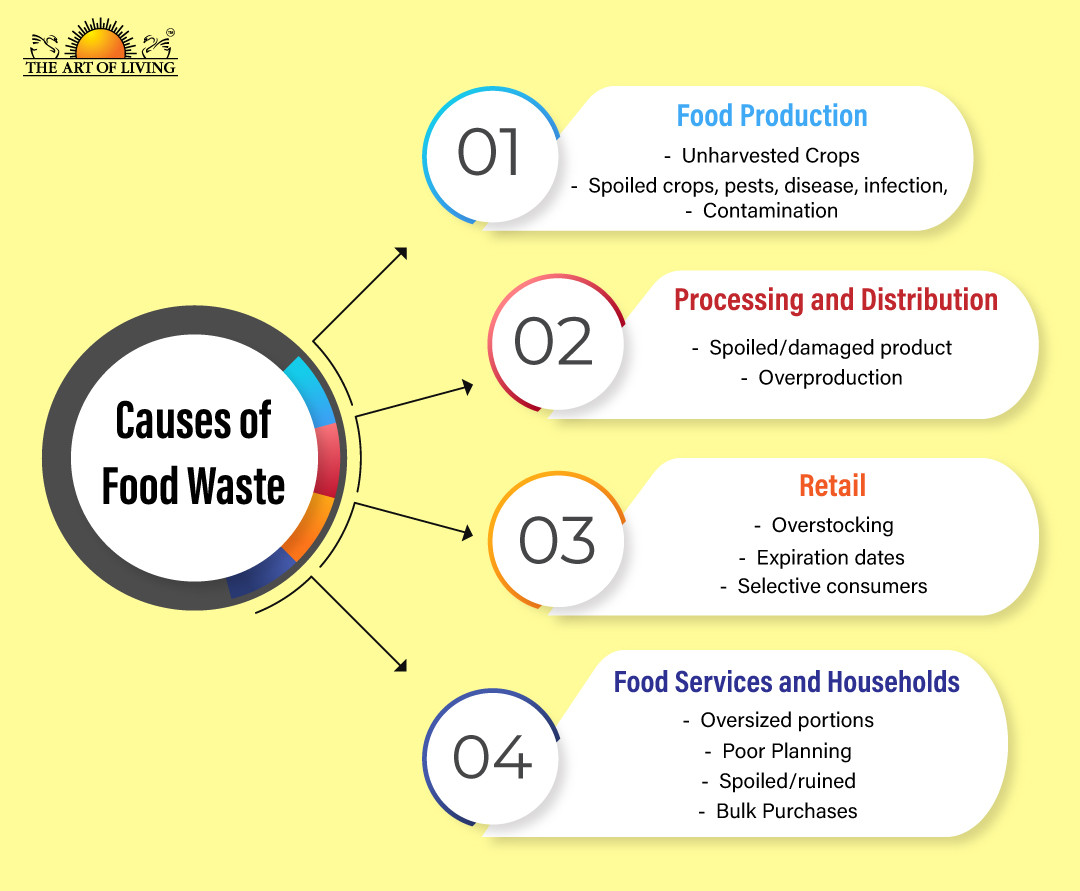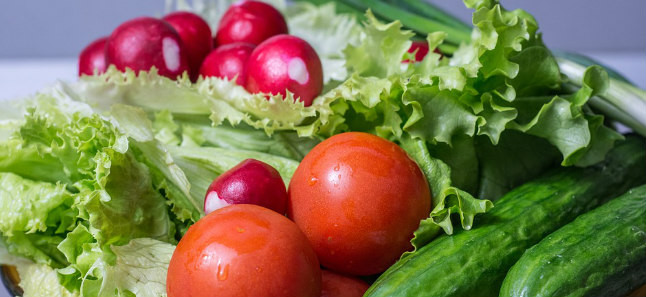While addressing the food scarcity issue, our school principal emphasized that we should not waste even one morsel on our plates. Remember, there are hungry children in the world who die without food. It shocked and motivated me not to waste food.
Current statistics about food wastage in India
Did you know that Indian households waste 50 kg of food annually per person? According to the United Nations Environment Programme report, an estimated 931 million tonnes of food were wasted world-over in 2019. Nearly 195 million undernourished people are in India, which is a quarter of the world's hunger burden. Despite this grave hunger, 11,520 tonnes of food grains were wasted in the past four years due to poor food maintenance.
What are the causes of food waste?

I wondered in childhood, where do the tonnes of food produced disappear? Stuffing a household fridge with heavily discounted foods, heavy rains damaging crops, or truckers’ strikes due to diesel price hikes leading to rotten vegetables are some of the reasons for food waste.
Tips to reduce food waste

Among many areas of food waste, the wastage at home is reducible with the persistent efforts of an individual. Become a zero-food waster by using these tips at home.
Reduce the use of refrigerated food
Ayurveda says that cooked food gets moisture after storing it in the refrigerator. It becomes the breeding ground for bacteria and other pathogens. Thus, it is better to reduce the use of refrigerated food. Buy local foods frequently to reduce refrigeration. Foods retain their original taste for long when stored at room temperature. For example bananas, tomatoes, citrus fruits, avocados, butter, potatoes, sweet potatoes, etc. At least reduce the size of your fridge space by removing one or two shelves or drawers to motivate you to store only the essentials.
Plan menu for the week

When you plan a menu for the week, you will tend to store only those ingredients you will use in the week. The possibility of overstocking will diminish to a large extent.
Buy in bulk only if it is a necessity in the near future
If you are planning to host a party at home or are expecting guests, your bulk purchase is justified. Or else a bulk purchase might allure a hefty discount, but the spoilage of food burdens your pocket.
Check your food store and fridge before the purchase
I learned from my experience to dig in the food stored in the fridge and kitchen food containers before preparing a shopping list. A physical stock check ensures you are buying things you need and don’t have. This habit keeps your stock all-time fresh.
Arrange food to your nearest with an early expiry date
Arrangements of your foods on the shelf should allow you to reach the pack with an early expiry date. I arrange ghee (clarified butter) and cooking oil packs this way.
Bring old grains to the top of the container
While refilling groceries in containers, ensure that the old remains of grains or lentils are brought to the top to use them first. Or it is better to store them in separate containers.
Buy the vegetable size you often use

In some recipes, you might need just a small-sized tomato, but soup requires a large quantity. Depending on the recipe, buy the vegetable size you require to minimize wastage.
Learn a lesson from the last food waste
Narrow down the reasons for the last food waste at your home so that it is not repeated. For instance, your children eating lesser than usual could be because of seasonal changes. Generally, during seasonal changes, children’s appetite reduces.
Inform your mother or home cook if you are not eating at home
If my son plans to eat out with friends, he calls to notify me so that his portion of the meal is not prepared. I confirm with my family members about meals when they are planning an outing so that I prepare what we plan to eat.
Donate food
We can end world hunger simply by reducing our food waste and donating the food we can’t eat ourselves. Despite all precautions, sometimes a lot of food is left, then ‘timely’ donation to the needy is the best option. Timely means before the food gets stale.
Finish the leftovers first

Before preparing a meal, check for leftovers in the refrigerator and kitchen top to use first, or they will get spoiled. There are many recipes that use the leftovers creatively.
Teach children the value of food
Research says that young adults have a high tendency to waste food! It is vital to teach our children gratitude for food, the basics of cooking and shopping for food, food expiry, the proper way to store food, portion size, use of leftovers, etc.
You can be the change
Don’t wait for the other family member to sort the old and new food. Initiate saving the planet and your money.
The Wellness Program is a roadmap designed for a healthy body and mind.
Written by: Pratibha Sharma
We’d love to hear from you!
Please write to us @artofliving about your ways to reduce food waste at home.
Related link
Reducing pollution with solid food management in The Art of Living
FAQs on food waste
Food waste is any avoidable food loss. These are the edible cooked and raw portions of food produced for human consumption but are unfortunately not consumed by them and get stale, or left on a plate, or are altogether thrown away.
Food loss is the loss of edible food before it reaches consumers, resulting from the production, storage, processing, and distribution phases (damage by insects, rodents, birds, molds, and bacteria). At the retail level, equipment malfunctioning (faulty cold storage), over-ordering, and removal of blemished produce can result in food loss.
Yes. But the food gets wasted from harvest to retail, leaving 821 million people hungry and malnourished globally.
- From growing crops in the field to manufacturing, transporting and selling food products, all consume energy and resources. Along with food waste, all consumed energy and resources go waste too.
- The tons of waste food actually waste gallons of freshwater used to produce it in fields and manufacturing products.
- There is a financial burden on households when you buy food and waste a large portion of it.
- A significant portion of greenhouse gases adversely impacts our environment.
- To fight world hunger.
Make small pieces of the leftover chapatis. Layer the chapati pieces, veggies, cheese, and sauces (red and white) on a pan and bake it for a few minutes with a covered lid. Enjoy chapati pan pizza.
































